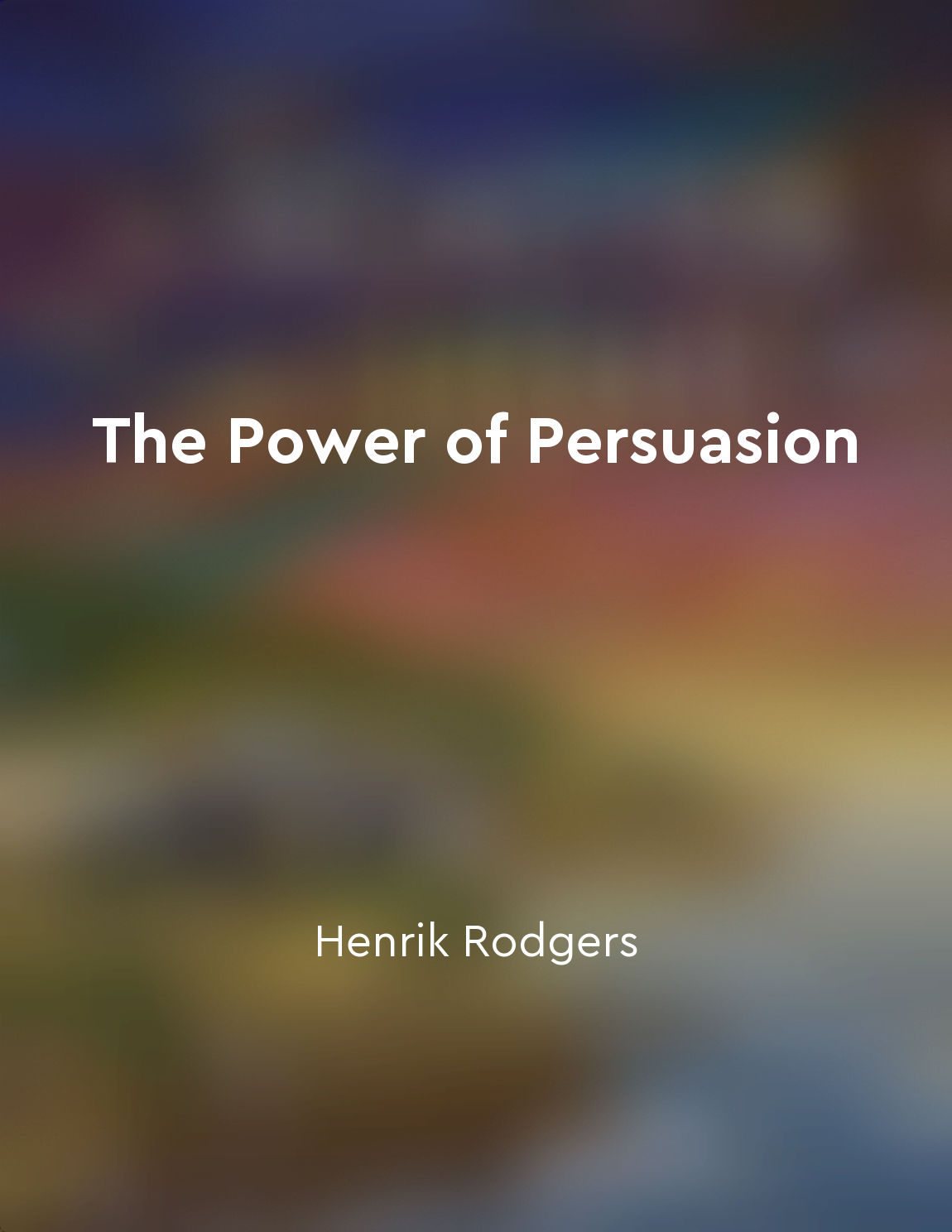Audio available in app
Use the power of reciprocity in persuasion from "summary" of The Power of Persuasion by Henrik Rodgers
The power of reciprocity in persuasion is a fundamental concept that can greatly influence the success of your persuasive efforts. Reciprocity is the idea that when someone does something nice for us, we feel compelled to reciprocate in kind. This principle is deeply ingrained in human nature and can be a powerful tool in influencing others. When you use the power of reciprocity in persuasion, you are essentially creating a sense of obligation in the other person. By doing something for them, whether it's a small gesture or a larger favor, you are setting the stage for them to feel obligated to return the favor. This can be a powerful motivator for action, as people naturally want to uphold their end of the social contract. One way to effectively use the power of reciprocity in persuasion is to be the first to give. By offering something of value to the other person, you are creating a sense of indebtedness on their part. This can make them more likely to be receptive to your requests or suggestions, as they will feel compelled to reciprocate the favor you have done for them. Another way to leverage the power of reciprocity is to frame your requests as a favor. By asking someone to do something for you, you are activating their sense of reciprocity and increasing the likelihood that they will comply. People are more likely to say yes to a request when they feel that they are repaying a favor or returning a kindness.- Understanding and harnessing the power of reciprocity in persuasion can greatly enhance your ability to influence others. By creating a sense of obligation and indebtedness, you can increase the likelihood that others will be receptive to your messages and more willing to take action. So the next time you find yourself trying to persuade someone, consider how you can use the power of reciprocity to your advantage.


